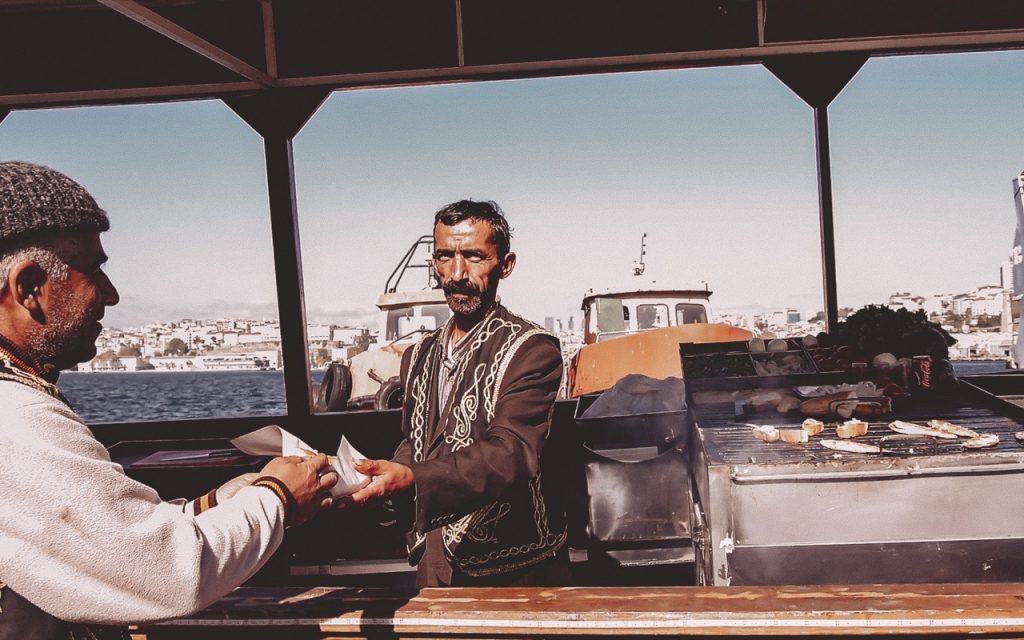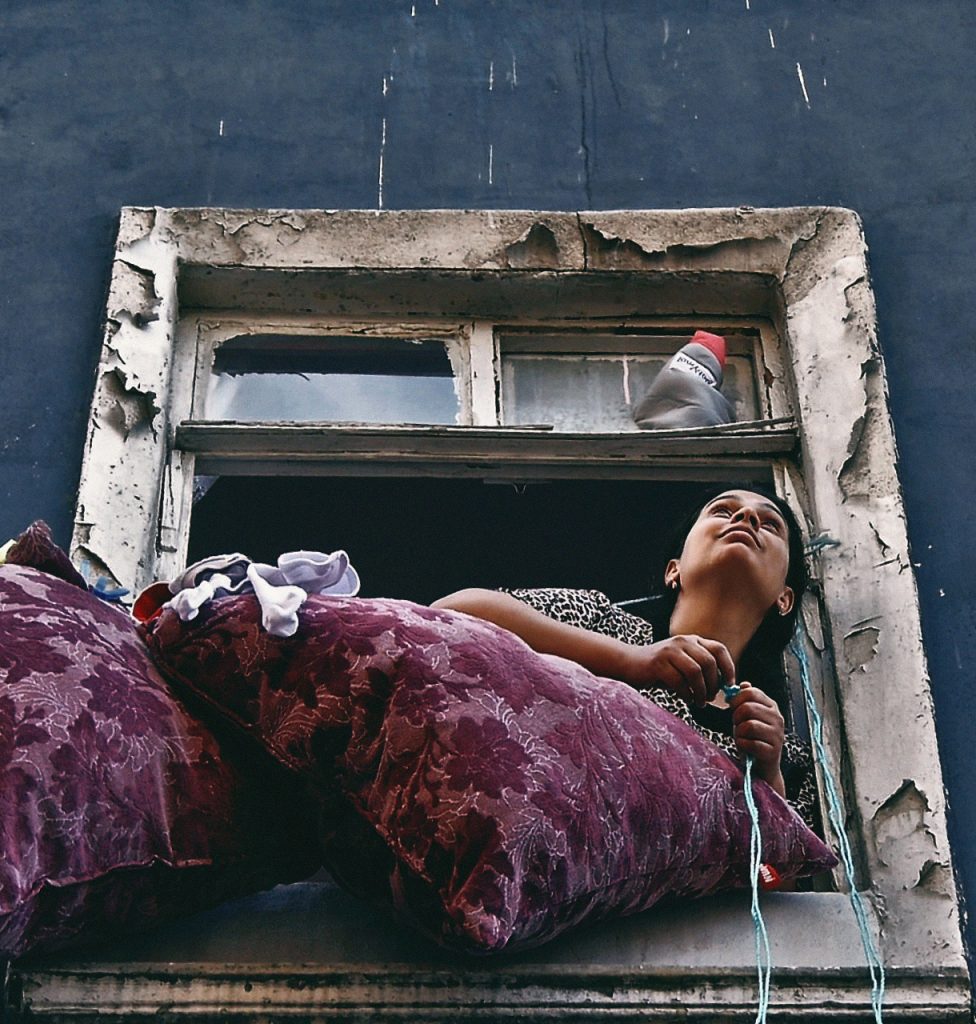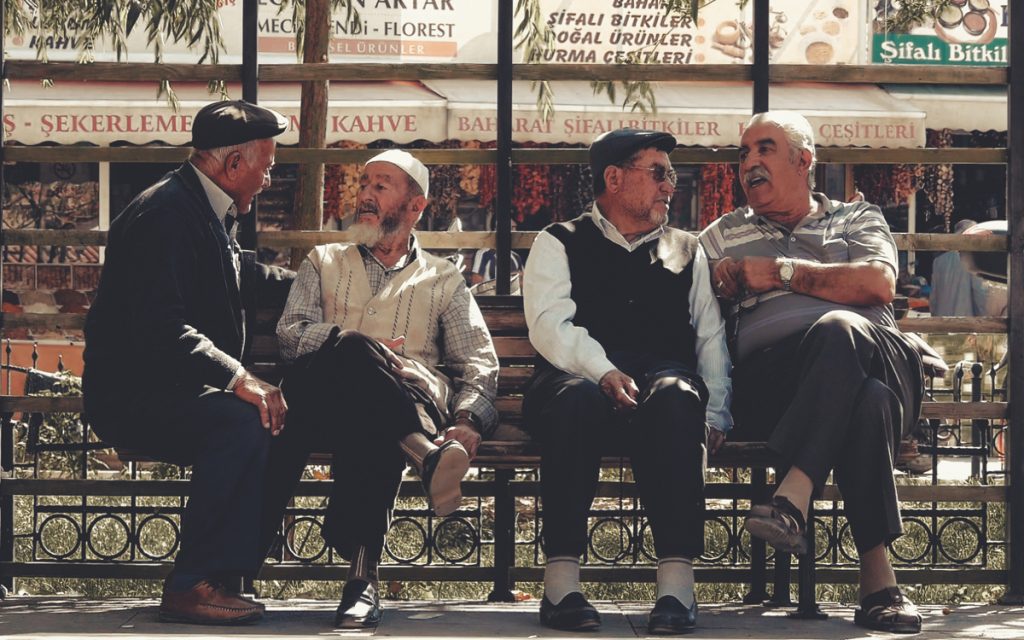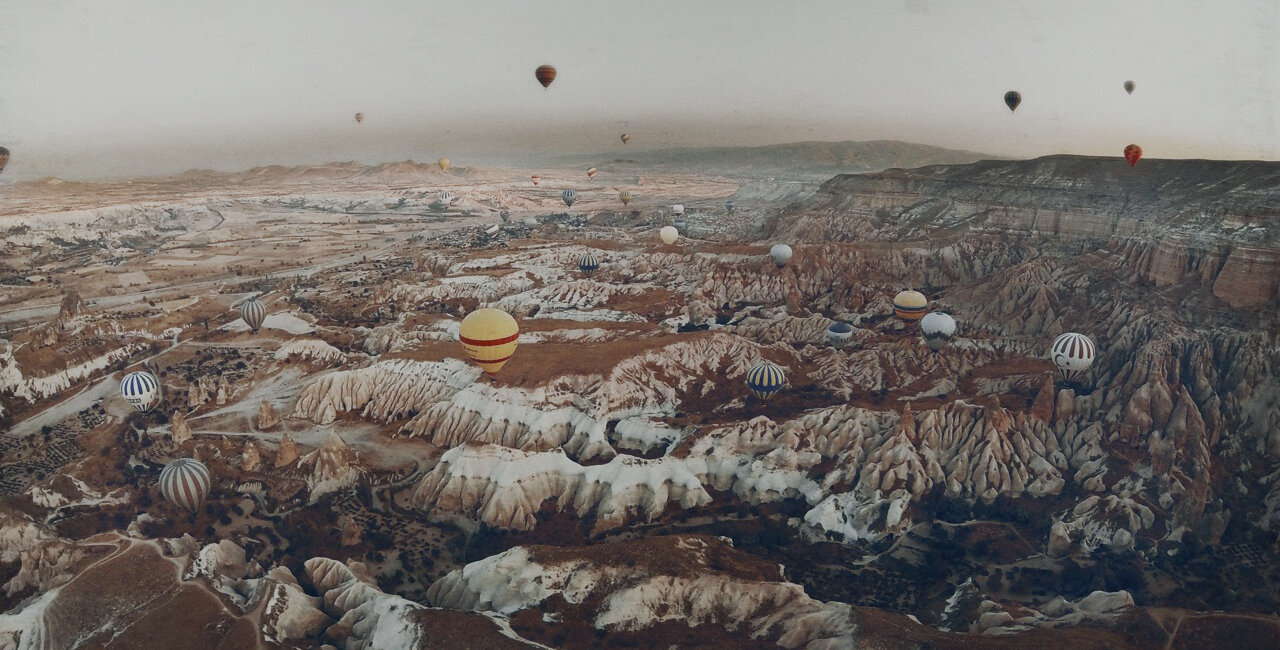Lately we’ve been asking filmmakers why they make films. The question is usually pretty awkward, since most filmmakers haven’t really thought about it. They make films because they are compelled to make films. But when you ask, and when you press past the long silence that follows, there is often a surprising and beautiful answer waiting for you. For Leonardo Dalessandri — the visionary Italian filmmaker behind Watchtower of Turkey — his reason is simple.
“I love music,” he told us. “When I am making films, I am making music.”
If you’ve seen Leo’s work, this answer makes perfect sense. His films are frenetic, spontaneous, alive. They have the offbeat swagger of, say, Thelonious Monk. Or, to be more true to Leo’s own influences, Jimi Hendrix.
We recently chatted with Leo from his snowed-in cabin in Istanbul. He was on location making an upcoming film for Google.

Do you have time to talk?
I have a lot of time. Today we are free because there is lots of snow. We can’t shoot. We have to wait three more days. It’s the white week in Istanbul.
As a side note, I can’t believe you’ve been speaking English for only one month.
The first time I spoke English was in Los Angeles. I was unable to say, “I’m hungry.” So the first day I just went hungry. At the hotel, someone brought me cheesecake without a spoon. I called my producer, Ron. He said, “Yes, Leo?” I said, “Ron, I need…” I tried to tell him “spoon,” but I didn’t know the word. “I need…I need… Okay, Ron, good night.” I ate the cheesecake with my hands.
Let’s get some brief background. When did you first pick up a camera and think, This thing is awesome! I want to become a filmmaker.
The first camera my father brought me was a big Panasonic. I was 11 years old, just a kid. I started trying to make family videos during the holidays, summer, things like that. The first professional video shoot I assisted on was for an Italian DOP, Filippo Chiesa. And the first professional camera I bought was the Sony AX1.
“I was trying to tell my story — to tell the story of the country in which I traveled. It’s not just a travel video where I show architecture. I tried to talk with people, to understand what they thought, what they loved.”
Did you go to film school?
I went to university for film and theater. But it was while I was assisting the DOP that I taught myself Final Cut and After Effects by watching tutorials on the Internet. I worked with that DOP for two years before I started working on my own projects in Italy and lots of projects in France.
Your work, especially Watchtower of Turkey, is so different from anything else out there. Was there an evolution you went through to get there or did this work start happening spontaneously?
There is no script. As you can see in the video, it’s impossible to have a script. I was trying to tell my story — to tell the story of the country in which I traveled. It’s not just a travel video where I show architecture. I tried to talk with people, to understand what they thought, what they loved.
Before I came here [to Istanbul], I studied Atatürk, [the first president of Turkey], who was an incredible man. But when you get here and start talking to people, you find out things are different than you might read in a book. For example, in Turkey, on the day Atatürk died — the same minute — the whole country stopped for five minutes. It was incredible. So unless you’re here, you can’t understand what Atatürk really meant [to Turkey].
Some of the camera work in Watchtower of Turkey is so wild.

When I made my first Watchtower film — [Watchtower of Morocco] — I shot without any movement. So I had to create that movement with transitions or create movement inside the frame. With Watchtower of Turkey, I started shooting in a different way. For example, I might shoot a woman who is preparing pasta. And I might shoot that woman like this. {Imitates camera move} Tomorrow when I shoot something else, I remember that clip I shot yesterday. I remember that movement. And I try to shoot something else in the same way so I can make a transition between them. Sometimes you have to watch the footage while you shoot, to remember what you loved and what you want to use.
So you just made it all up as you went along?
Yes. Without a script. Without Lonely Planet. I love to ask people where things are instead of looking them up, because you usually end up finding something else. In Istanbul there are a lot of beautiful places, but they’re full of tourists and never full of real people. Real Turkish people. So I started going to the places where I could find original people. And that’s really the best part of my job. I love to move around with a small crew. These travel videos are really what I do right now. Clients call and want something like Watchtower. For example, right now I’m on a shoot for Google, making a video in my Watchtower style: hyperlapse and slow motion and smooth transitions.
What type of equipment do you like to use?
I use easy, cheap cameras. GH4. GoPro. I’ve never told anyone this, but sometimes I shoot with my iPhone as well. Because when you travel, you have to be fast. You can’t think, Maybe I should change the lens. You want to tell a story. And maybe the quality isn’t as good as a DOP would want; but for what I need, it’s just perfect. You don’t want to lose the moment.

“When I am making films, I am making music. Images, footage, clips — for me, it’s all music. Silence is music. If you are able to transform silence into music, you are a good director.”
Do people ever get upset at you for filming them?
In Morocco it was sometimes a problem. For example, I started to shoot this one very old man with his horse, and he started shouting at me, “You can’t! You can’t shoot that!” I said, “Why?” He said, “You need to pay money!” I said, “How much?” And he said, “Five dirham.” Something like 20 cents. So we paid him, and then he left his horse and started walking around with us, saying, “He’s with me. He can shoot anything he wants.”
Why do you make films?
I love music. When I am making films, I am making music. Images, footage, clips — for me, it’s all music. Silence is music. If you are able to transform silence into music, you are a good director. This is what I think. All is rhythm. Right now, outside our window we can hear a Muslim in a mosque singing. If you were here with me, with this beautiful view, with snow on the house, we would just listen to this. And when he stops, the music will continue because you will start to think about it. This is rhythm. It makes you able to tell a story.
To me, the best musician is Howard Hawks, the director of Rio Bravo. That guy was a musician, not a director. The tempo of his film is perfect. Film is rhythm. Music is rhythm. Painting is rhythm. This is what I think.
Who are your favorite musicians?
If you asked me what I did for the first 10 years of my life, I would say I walked around a table listening to Pink Floyd, Led Zeppelin, Jimi Hendrix, Stevie Wonder, and Aretha Franklin. I was six years old, and one day my dad bought this Hi-Fi from a discotheque. The Hi-Fi seemed bigger than the room. I would lock the door, turn out the light, and for three or four hours I would walk around this 300-year-old table with my eyes closed, and I would just listen to the music.

What films do you love?
I love the rhythm of old cinema. I think today a lot of directors have lost the intention of making something real. I’m not interested in acting. I’m not interested in theater. For example, if you watch His Girl Friday with Rosalind Russell and Cary Grant, it’s real. They didn’t have camera movement like we do now, so they had to create movement in the rhythm, in the action. I don’t know if I am explaining this right, but I love old-style movies.
I also watch a lot of Vimeo videos. Not just Staff Picks. Sometimes it’s a video that’s only had three plays. Personal videos of holidays, families. Sometimes it’s good to watch something simple like that. You can enter into the minds of those people, fall in love with their families. I can watch the smile of that girl and know it is real. It’s not a film. I’ve found something I can use later on because it’s real. I found the magic. This is what I think.
Do you feel successful as a filmmaker?
I feel grateful, but I don’t feel successful. I’m just grateful that all of this is part of my life. That I can continue to do what I love. Two years ago I had a hard time traveling, had a hard time buying equipment. Now I have what I need. I can continue to do what I want. For example, I just refused a big-budget project because I didn’t like the script. I knew I wasn’t the right director for it. I would rather focus on this Google project. I don’t want to work just to gain money; I want to make work that I love. I have to fall in love with what I do.

We love the idea of finding inspiration in real things, unconstructed scenes, honest moments. It’s a brilliant way to escape the most dangerous aspect of Vimeo: endless imitation. Huge thanks to Leo for taking the time to talk with us. We can’t wait to see what he comes up with in Istanbul.

















































































